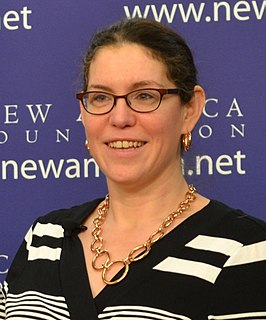A Quote by John Michael Greer
I've long suspected that one of the reasons why human beings haven't yet figured out how to carry on a conversation with bottlenosed porpoises, African gray parrots, et al. in their own language is quite simply that we're terrified of what they might say to us - not least because it's entirely possible that they'd be right.
Related Quotes
I was deeply interested in conveying what is a deeply felt conviction of my own. This is simply to suggest that human beings must involve themselves in the anguish of other human beings. This, I submit to you, is not a political thesis at all. It is simply an expression of what I would hope might be ultimately a simple humanity for humanity's sake.
Hence, at the moment of the creation of the universe, God could also have activated evolution, with full knowledge of how it would turn out, perhaps even including our having this conversation. The idea that he could both foresee the future and also give us spirit and free will to carry out our own desires becomes entirely acceptable.
Everything we know has its origin in questions. Questions, we might say, are the principal intellectual instruments available to human beings. Then how is it possible that no more than one in one hundred students has ever been exposed to an extended and systematic study of the art and science of question-asking? How come Alan Bloom did not mention this, or E. D. Hirsh, Jr., or so many others who have written books on how to improve our schools? Did they simply fail to notice that the principal intellectual instrument available to human beings is not examined in school?
Micromessaging -- communicating with other human beings through visual, audible, sublingual means, no doubt predates our ability to speak. We actually read micromessages quite naturally without thinking about them. You might say human beings read each other's micromessages subconsciously, in the same way that one dog understands another dog is unfriendly simply because the dog's fur is standing on end. The dogs read each other perfectly. It's not all that different for people.
My parents were entirely unpredictable and what they said very unreliable, which meant I became very attuned to the range of other signals human beings give out - body language or what Freud graphically called the "betrayal that oozes out of him at every pore," betrayal, that is, of what they really mean. I have that to this day, and it makes conversation exhausting because I'm listening not just to the words of the person in front of me but also to their body. It's as if there are two radio stations on at the same time.
There is no limit to suffering human beings have been willing to inflict on others, no matter how innocent, no matter how young, and no matter how old. This fact must lead all reasonable human beings, that is, all human beings who take evidence seriously, to draw only one possible conclusion: Human nature is not basically good.
Let us ban together to invent all the miracles and resurrection appearances which we never saw and le us carry the sham even to death! Why not die for nothing? Why dislike torture and whipping inflicted for no good reason? Let us go out to all nations and overthrow their institutions and denounce their gods! And even if we don't convince anybody, at least we'll have the satisfaction of drawing down on ourselves the punishment for out own deceit.
Between two beings there is always the barrier of words. Man has so many ears and speaks so many languages. Should it nevertheless be possible to understand one another? Is real communication possible if word and language betray us every time? Shall, in the end, only the language of tanks and guns prevail and not human reason and understanding?
To say that truth is not out there is simply to say that where there are no sentences there is no truth, that sentences are elements of human languages, and that languages are human creations.~ The suggestion that truth~ is out there is a legacy of an age in which the world was seen as the creation of a being who had a language his own.
No matter what part of the world we come from, we are all basically the same human beings. We all seek happiness and try to avoid suffering. We have the same basic human needs and concerns. All of us human beings want freedom and the right to determine our own destiny as individuals and as peoples. That is human nature.



































